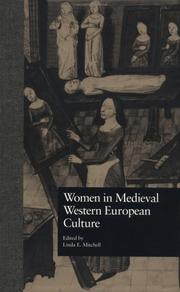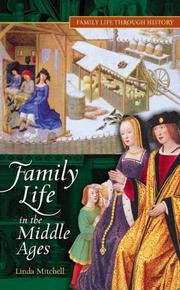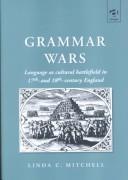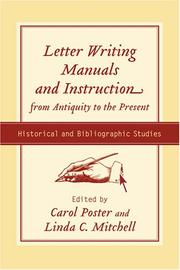| Listing 1 - 10 of 15 | << page >> |
Sort by
|
Book
ISBN: 9811317933 9811317917 Year: 2019 Publisher: Singapore : Springer Singapore : Imprint: Springer,
Abstract | Keywords | Export | Availability | Bookmark
 Loading...
Loading...Choose an application
- Reference Manager
- EndNote
- RefWorks (Direct export to RefWorks)
This book uses case studies of Aotearoa New Zealand policy formulation and practice to explore early childhood education and care (ECEC) as a site for democratic citizenship and social justice. Addressing fundamental questions about the purpose of education, it argues for explicit values focusing on children and childhood as a basis for ECEC policy to replace discourses of economic investment and child vulnerability that are dominant within policy goals in many countries. A commitment to democracy and equity is a good place to start. Aotearoa New Zealand is of special interest because of its world-renowned ECE curriculum, Te Whāriki, which is based on principles of social justice, respect for rights and an aim to support children growing up in a democracy. The curriculum upholds Māori rights to tino rangatiratanga (absolute authority over their lives and resources). Yet, Aotearoa New Zealand’s extreme market policies and harsh labour laws during recent periods run contrary to ideals of democracy and are puzzlingly inconsistent with curriculum principles. The book starts with an analysis and critique of global trends in ECEC in countries that share capitalist mixed economies of welfare, and where competition and marketisation have become dominant principles. It then analyses ideas about children, childhood and ECEC within a framework of democracy, going back to the Athenean origins of democracy and including recent literature on meanings and traditions of democracy in education. The book uses vivid examples from researching curriculum, pedagogy and assessment practices within Aotearoa New Zealand ECEC settings and collective action to influence policy change in order to illustrate opportunities for democratic education. It concludes by examining what conditions might be needed for integrated and democratic ECEC provision in Aotearoa New Zealand, and what changes are necessary for the future. It offers a compass not a map; it points to promising directions and provides insights into issues in ECEC policy and practice that are of current global concern.
Early childhood education --- Education and state --- Citizenship --- Study and teaching --- Early childhood education. --- Early Childhood Education. --- Educational Policy and Politics. --- International and Comparative Education. --- Education --- Child development. --- Educational policy. --- Education and state. --- International education . --- Comparative education. --- Education, Comparative --- Global education --- Intellectual cooperation --- Internationalism --- Education policy --- Educational policy --- State and education --- Social policy --- Endowment of research --- Child study --- Children --- Development, Child --- Developmental biology --- History --- Government policy --- Development
Digital
ISBN: 9789811317934 Year: 2019 Publisher: Singapore Springer Singapore, Imprint: Springer
Abstract | Keywords | Export | Availability | Bookmark
 Loading...
Loading...Choose an application
- Reference Manager
- EndNote
- RefWorks (Direct export to RefWorks)
This book uses case studies of Aotearoa New Zealand policy formulation and practice to explore early childhood education and care (ECEC) as a site for democratic citizenship and social justice. Addressing fundamental questions about the purpose of education, it argues for explicit values focusing on children and childhood as a basis for ECEC policy to replace discourses of economic investment and child vulnerability that are dominant within policy goals in many countries. A commitment to democracy and equity is a good place to start. Aotearoa New Zealand is of special interest because of its world-renowned ECE curriculum, Te Whāriki, which is based on principles of social justice, respect for rights and an aim to support children growing up in a democracy. The curriculum upholds Māori rights to tino rangatiratanga (absolute authority over their lives and resources). Yet, Aotearoa New Zealand’s extreme market policies and harsh labour laws during recent periods run contrary to ideals of democracy and are puzzlingly inconsistent with curriculum principles. The book starts with an analysis and critique of global trends in ECEC in countries that share capitalist mixed economies of welfare, and where competition and marketisation have become dominant principles. It then analyses ideas about children, childhood and ECEC within a framework of democracy, going back to the Athenean origins of democracy and including recent literature on meanings and traditions of democracy in education. The book uses vivid examples from researching curriculum, pedagogy and assessment practices within Aotearoa New Zealand ECEC settings and collective action to influence policy change in order to illustrate opportunities for democratic education. It concludes by examining what conditions might be needed for integrated and democratic ECEC provision in Aotearoa New Zealand, and what changes are necessary for the future. It offers a compass not a map; it points to promising directions and provides insights into issues in ECEC policy and practice that are of current global concern.
Educational systems. Teaching systems --- Teaching --- Kindergarten --- Educational sciences --- onderwijspolitiek --- kapitalisme --- kleuterdidactiek --- peuters --- onderwijsonderzoek --- New Zealand

ISBN: 0815324618 9780815324614 Year: 1999 Volume: 2007 Publisher: New York Garland Publishing
Abstract | Keywords | Export | Availability | Bookmark
 Loading...
Loading...Choose an application
- Reference Manager
- EndNote
- RefWorks (Direct export to RefWorks)
Women --- Social history --- History --- Social conditions. --- Law --- Christian religion --- Fiction --- Sociology of work --- Politics --- Art --- anno 500-1499 --- Europe --- Human females --- Wimmin --- Woman --- Womon --- Womyn --- Females --- Human beings --- Femininity --- Social conditions --- Medieval, 500-1500 --- Europe [Western ] --- Middle Ages, 500-1500 --- Women - Europe, Western - History - Middle Ages, 500-1500. --- Women - Europe, Western - Social conditions. --- Social history - Medieval, 500-1500. --- Literature --- Labour --- Legislation --- Book --- Christianity
Book
ISBN: 0230392008 1349564478 0230392016 Year: 2016 Publisher: New York : Palgrave Macmillan US : Imprint: Palgrave Macmillan,
Abstract | Keywords | Export | Availability | Bookmark
 Loading...
Loading...Choose an application
- Reference Manager
- EndNote
- RefWorks (Direct export to RefWorks)
Heir to an earldom, and wife and widow of William de Valence (half-brother of King Henry III), Joan de Valence was an important actor in the volatile political world of thirteenth-century England, Wales, Scotland, and Ireland. Yet, astonishingly, her story of survival, perseverance, and influence has never been told until now. Joan de Valence: The Life and Influence of a Thirteenth-Century Noblewoman draws on archival research, as well as tools of historical analysis and gender studies, to peel back the layers of this remarkable noblewoman's life. From her survival of the wars between king and baronage at mid-century to her life as a widow and magnate of the realm, the story of Joan de Valance, as Mitchell argues, exemplifies the range of experiences of noblewomen during the middle ages.
Literature - General --- Languages & Literatures --- Nobility --- Women --- Widows --- Regions & Countries - Europe --- History & Archaeology --- Great Britain --- History --- Pembroke, Joan de Valence, --- Henry --- Edward --- Influence. --- Family. --- Noble class --- Noble families --- Nobles (Social class) --- Peerage --- Human females --- Wimmin --- Woman --- Womon --- Womyn --- Henry, --- Valence, Joan de, --- De Valence, Joan, --- Swanscombe, Joan de Munchensi, --- Munchensi, Joan de, --- Munchensy, Joan de, --- Munchensi, Joanna de, --- Females --- Human beings --- Femininity --- Marital status --- Upper class --- Aristocracy (Social class) --- Titles of honor and nobility --- Literature, Medieval. --- Europe-History-476-1492. --- Europe-History. --- Classical literature. --- Medieval Literature. --- History of Medieval Europe. --- European History. --- Classical and Antique Literature. --- Literature, Classical --- Literature --- Literature, Ancient --- Greek literature --- Latin literature --- European literature --- Medieval literature --- Europe—History—476-1492. --- Europe—History.
Book
ISBN: 9780230392007 Year: 2016 Publisher: Basingstoke : Palgrave,
Abstract | Keywords | Export | Availability | Bookmark
 Loading...
Loading...Choose an application
- Reference Manager
- EndNote
- RefWorks (Direct export to RefWorks)
Women --- History --- Valence, Joan de. --- Great Britain --- History
Digital
ISBN: 9780230392014 Year: 2016 Publisher: New York Palgrave Macmillan US :Imprint: Palgrave Macmillan
Abstract | Keywords | Export | Availability | Bookmark
 Loading...
Loading...Choose an application
- Reference Manager
- EndNote
- RefWorks (Direct export to RefWorks)
Heir to an earldom, and wife and widow of William de Valence (half-brother of King Henry III), Joan de Valence was an important actor in the volatile political world of thirteenth-century England, Wales, Scotland, and Ireland. Yet, astonishingly, her story of survival, perseverance, and influence has never been told until now. Joan de Valence: The Life and Influence of a Thirteenth-Century Noblewoman draws on archival research, as well as tools of historical analysis and gender studies, to peel back the layers of this remarkable noblewoman's life. From her survival of the wars between king and baronage at mid-century to her life as a widow and magnate of the realm, the story of Joan de Valance, as Mitchell argues, exemplifies the range of experiences of noblewomen during the middle ages.
Literature --- History --- History of Europe --- literatuur --- Europese geschiedenis --- Renaissance --- middeleeuwen --- anno 500-1499 --- anno 500-799 --- anno 800-1199 --- anno 1200-1499 --- anno 1400-1499 --- anno 1500-1599 --- Europe
Book
ISBN: 9780754658283 0754658287 Year: 2016 Publisher: Farnham, Surrey Ashgate
Abstract | Keywords | Export | Availability | Bookmark
 Loading...
Loading...Choose an application
- Reference Manager
- EndNote
- RefWorks (Direct export to RefWorks)

ISBN: 031333630X 9780313336300 Year: 2007 Publisher: Westport Greenwood
Abstract | Keywords | Export | Availability | Bookmark
 Loading...
Loading...Choose an application
- Reference Manager
- EndNote
- RefWorks (Direct export to RefWorks)
Civilization, Medieval --- Families --- Social history --- History

ISBN: 0754602729 Year: 2001 Publisher: Aldershot Ashgate
Abstract | Keywords | Export | Availability | Bookmark
 Loading...
Loading...Choose an application
- Reference Manager
- EndNote
- RefWorks (Direct export to RefWorks)

ISBN: 9781570036514 1570036519 Year: 2007 Publisher: Columbia, S.C. University of South Carolina Press
Abstract | Keywords | Export | Availability | Bookmark
 Loading...
Loading...Choose an application
- Reference Manager
- EndNote
- RefWorks (Direct export to RefWorks)
Non-fiction --- Literary rhetorics --- Letter writing --- Correspondance --- History --- Handbooks, manuals, etc. --- History and criticism --- Histoire --- Guides, manuels, etc. --- Histoire et critique --- History. --- Letter writing - History --- Letter writing - Handbooks, manuals, etc.
| Listing 1 - 10 of 15 | << page >> |
Sort by
|

 Search
Search Feedback
Feedback About UniCat
About UniCat  Help
Help News
News